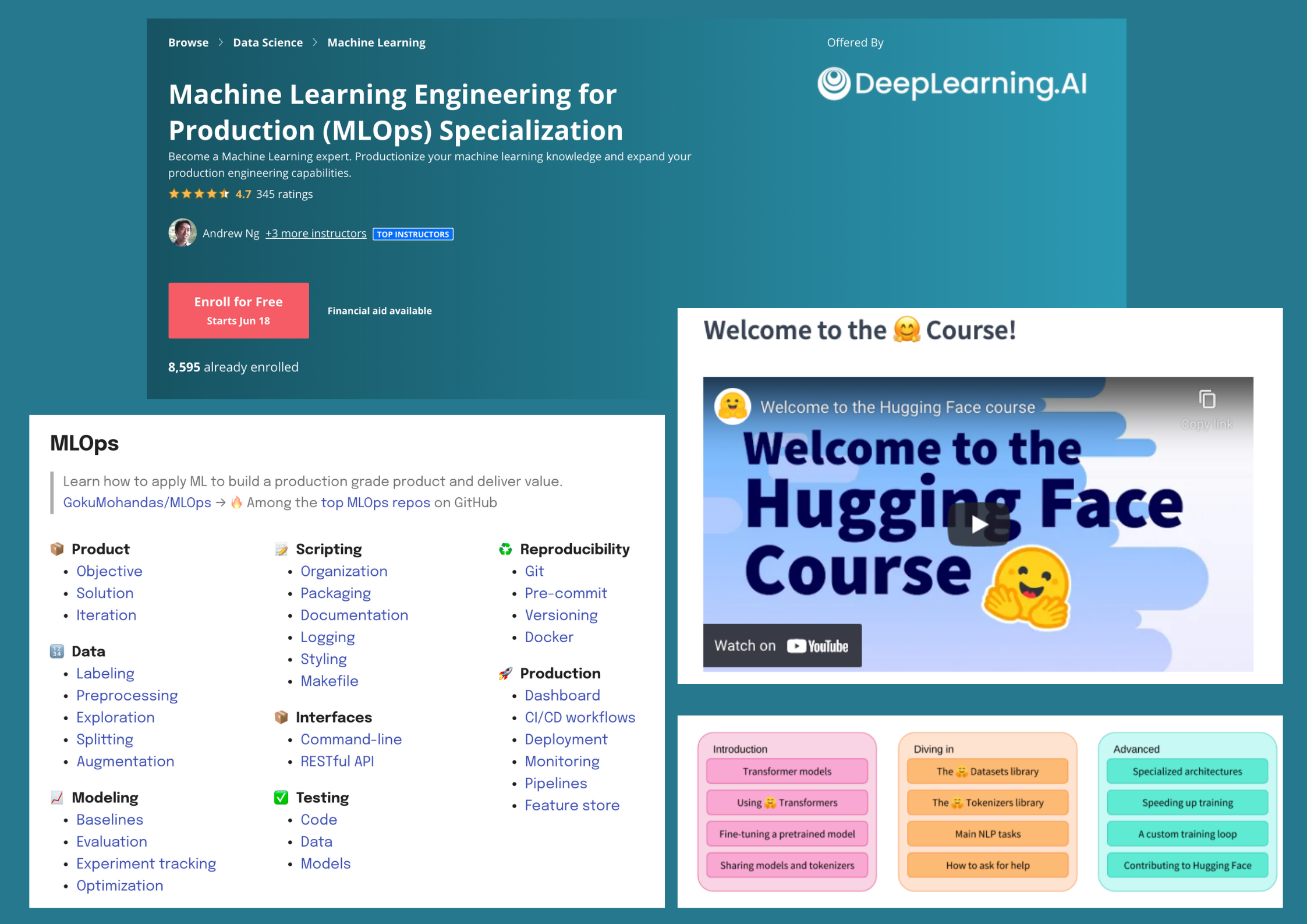Today, you don’t need to go to a university or a college to pursue a career in machine learning or any data-driven domain. But you do need a plan and a roadmap to guide your studies.
Once you have charted your own learning roadmap with a goal in mind, the next step is to screen the right set of courses that fit well into your roadmap. Then you can start building your foundation around those courses.
In this article, I wanted to share a few advanced-level specializations and courses that are on my list and that can help you with your search for the right course or the right career track.
So, here you go:
Machine Learning in Production Specialization by Andrew Ng
Discussions on topics like ML engineering and MLOps are helping to standardize practices that productionize ML models in the form of tools and techniques. And these novel ML engineering methods are not very well documented and aren't widely taught.
With this specialization, thanks to a few pioneers of the field, you learn how to write production-ready, ML-powered applications. The specialization will help you:
- Design an ML production system end-to-end
- Build data pipelines by gathering, cleaning, and validating datasets.
- Establish a model baseline and continuously improve a productionized ML application.
- Apply best practices and progressive delivery techniques to maintain and monitor a continuously operating production system.
This is a 5-month long specialization with 4 courses targeting every phase of ML Engineering.
You can go to individual courses on Coursera and audit them to have free access.
Andrew has done a remarkable job in democratizing Machine Learning for everyone, and this specialization might be able to do the same for ML Engineering.
I’ll write a detailed review on this course once I complete the specialization. Let me know how you find it if you finish it before I do.
Course on Transformers from Hugging Face🤗
For all you deep learning enthusiasts, there is a new course on transformers from Hugging Face. It looks very promising as I really enjoyed going through Practical Deep Learning for Coders from the same Author (Sylvian Gugger).
Anyone who is looking to dive deeper into training NLP models should definitely check this course out.
The course curriculum covers:
- Introduction to transformers, fine-tuning pre-trained models, and sharing the models and tokenizers.
- The dataset and the tokenizers library.
- How to develop specialized architectures, speed up training, and writing custom training loops.
The amazing part is that the course is absolutely free. Do it at your own pace and try to build a complete application instead of just a trained model.
The best way to learn something is by using it in your own project to solve your own problems.
MLOps Series from Made with ML by Goku Mohandas
I discovered Goku’s content a month ago and I am amazed by the amount of effort he is putting into developing this course on MLOps.
It takes a lot of work to actually hone your skills for each phase of MLOps because there are so many moving parts in an actual product (as compared to a model).
Goku has divided the course into a number of subsections:
- Product
- Data
- Modeling
- Scripting
- APIs and interfaces
- Testing & Reproducibility
- Production Systems
I highly recommend following his course – it is absolutely free and you can interact with similar minds by being a part of the community.
Note: A common mistake beginners (myself included) make is they keep hopping from one course to another without actually completing the deliverables of any single one.
This is fine if you are exploring, but when you set your sights on a course, try to build something out of it rather than simply following the lectures and doing the spoon-fed exercises.
Interesting read of the week - A Project of One’s Own
I read this post titled A project of One’s Own by Paul Graham (the co-founder of YCombinator) last week. It not only validated but strengthened my notions about working on your own projects voluntarily, even if it is a side gig.
It is an excellent essay on the importance of working on ambitious projects that you choose yourself.
Doing projects of your own with complete control and voluntary actions lets you feel the freedom and instigates your curiosity to dive deeper.
It teaches you a lot more than any job that someone else has told you to do.
Thanks for reading!
If this tutorial was helpful, you should check out my data science and machine learning courses on Wiplane Academy. They are comprehensive yet compact and helps you build a solid foundation of work to showcase.
